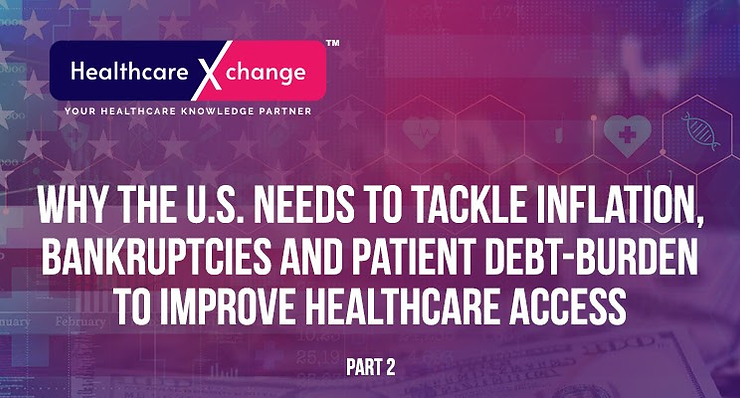
Why the U.S. Needs to Tackle Inflation, Bankruptcies and Patient Debt-Burden to Improve Healthcare Access
- Healthcare and General Service
- October 15, 2024
Bankruptcies
Healthcare enterprises in the U.S. constantly struggle to stay afloat, with a record number of significant corporations filing for Chapter 11 bankruptcy in 2023. Experts have identified exacerbated expenditures, improved rates of borrowing, reduced patient numbers, personnel shortages, and an unclear regulatory landscape as the primary contributors to bankruptcy.
Eighteen companies across various domains such as radiotherapy, medical staffing services and community hospitals filed for bankruptcy protection in a bid to manage debts. The liabilities of the companies exceeded USD 100 million with the overall assets totaling USD 7 billion against liabilities of USD 8.3 billion.
The companies include Envision, American Physician Partners and Akumin according to BankruptcyData.com. As per the analysis, the number of bankruptcies in the healthcare industry rose almost fivefold in 2023 from 2022.
The outlook remains challenging with the “No Surprises Act” to regulate patient billing with an eye on charges not covered by insurance plans. The act has led to unpredictable cash flows for healthcare providers with some companies finding it difficult to make interest payments.
Additionally, the U.S. government plans to withdraw support for Medicaid programmes from April 1. The programmes were initiated during the COVID-19 pandemic to provide insurance to low-income groups. It could lead to up to 25 million people losing coverage by May 2024. Medicaid accounted for USD 1 of every USD 6 spent out of the total healthcare expenditure of USD 4.3 trillion in 2022. The withdrawal could further dry up payments for providers in 2024.
Patient debt-burden
A recent survey by KFF Health News and NPR found that the number of Americans with medical debt exceeded 100 million. According to analysts from the medical billing domain, people with insurance coverage are likely to make up the majority or about 58% of debtors to U.S. healthcare service providers such as hospitals at present. It marks a notable shift in the U.S. health system with insured people accounting for only one in 10 “bad debt” write-offs until 2018.
Healthcare expenses account for more than 18% of gross domestic product in the U.S. with administration of complicated medical bills making up nearly one-third of the cost. Analysts attribute astronomical out-of-pocket expenses for insured individuals to the complexity of insurance plans, often characterised by large deductibles.
Under current regulations, insurers can charge an individual up to USD 9,450 in 2024 with the limit expected to rise to USD 14,100 by 2030. As deductibles reset every year, out-of-pocket payments rise equally on an annual basis. The trend leads to spiralling costs for people with chronic illnesses that have to visit medical facilities frequently and consequently which leads to patient debt. It has prompted hospitals to become debt collectors and resort to methods such as garnishing paychecks as well as imposing property liens on residences.
Analysts have identified a core reason for the malaise afflicting health systems. Current evidence shows that most patients with significant medical debt are often from low-income demographics who cannot afford insurance and are eligible for discounted or even free healthcare under certain government programmes but are unaware of it.




